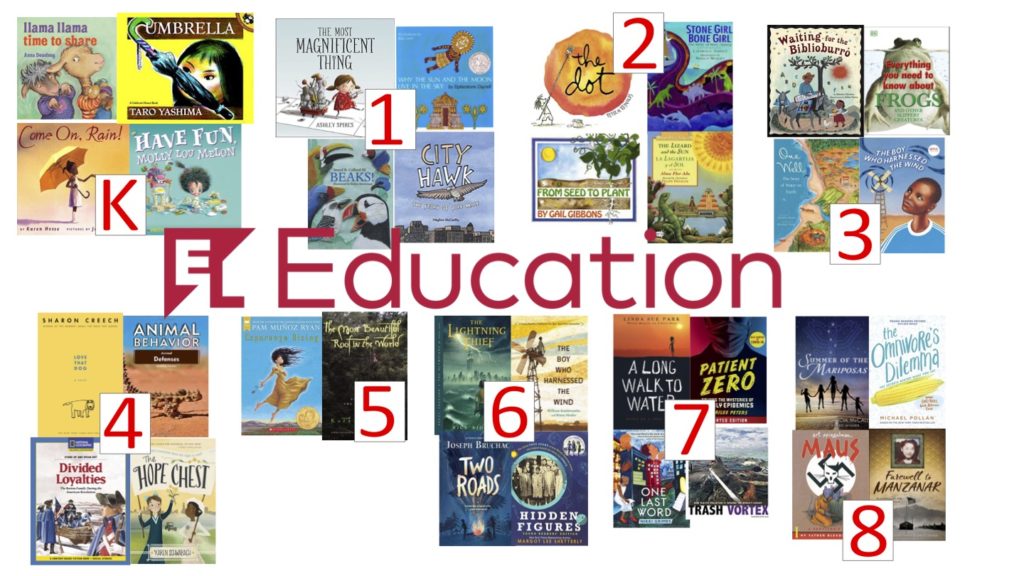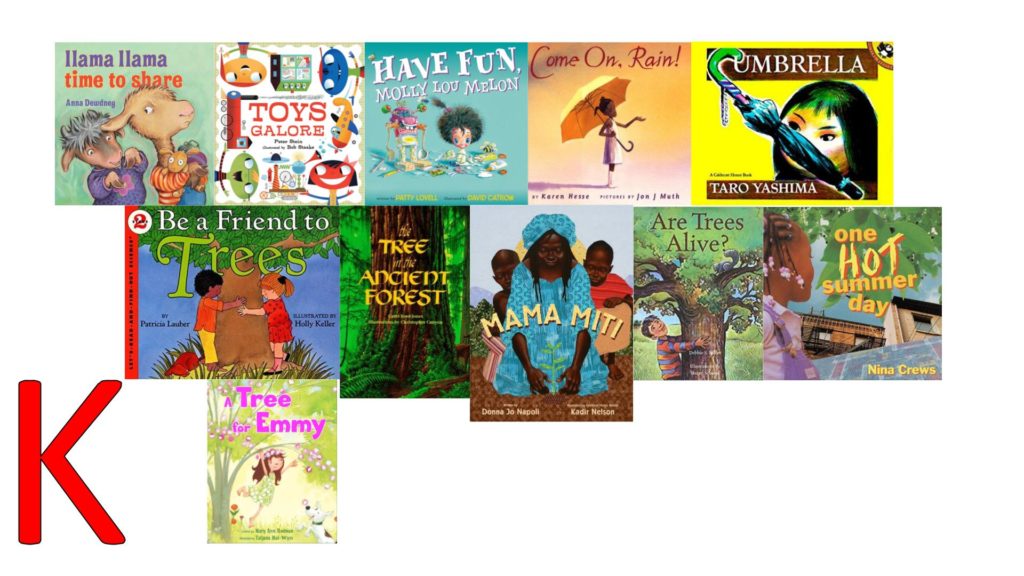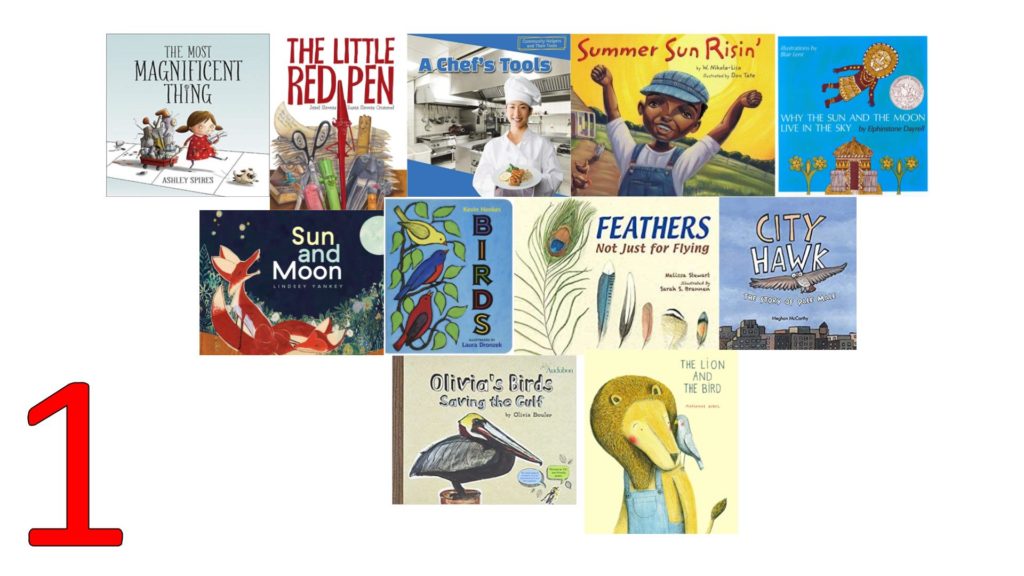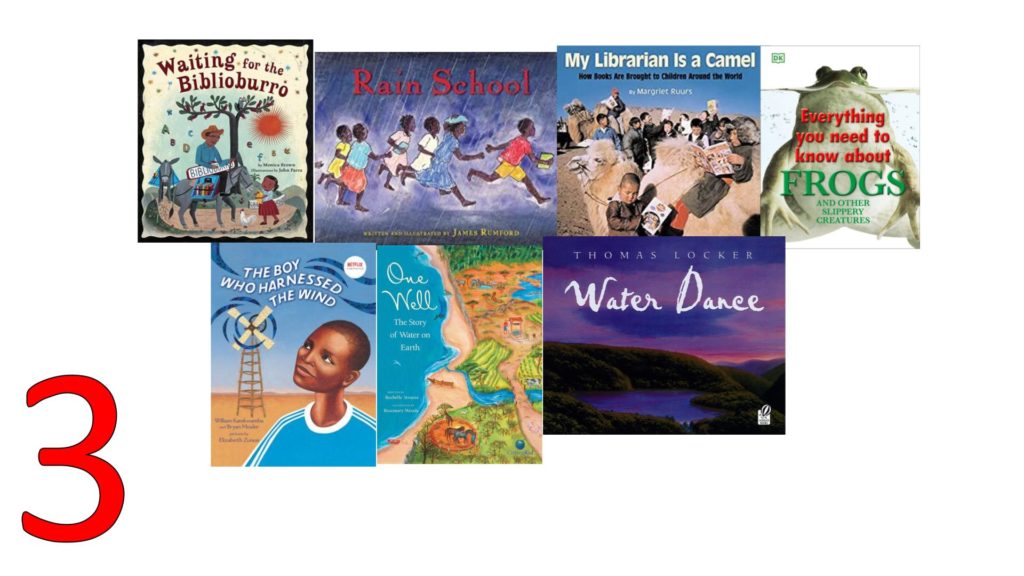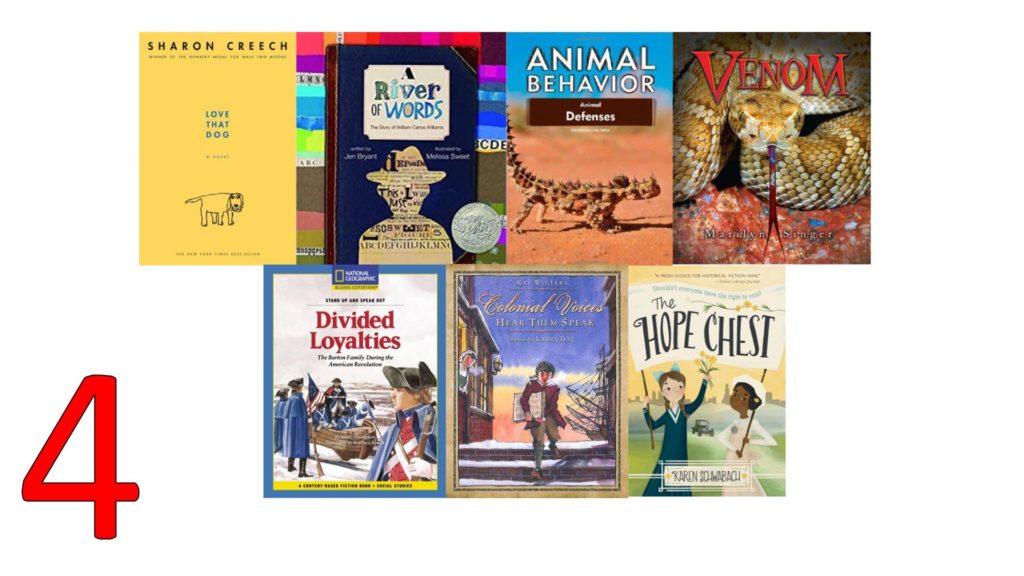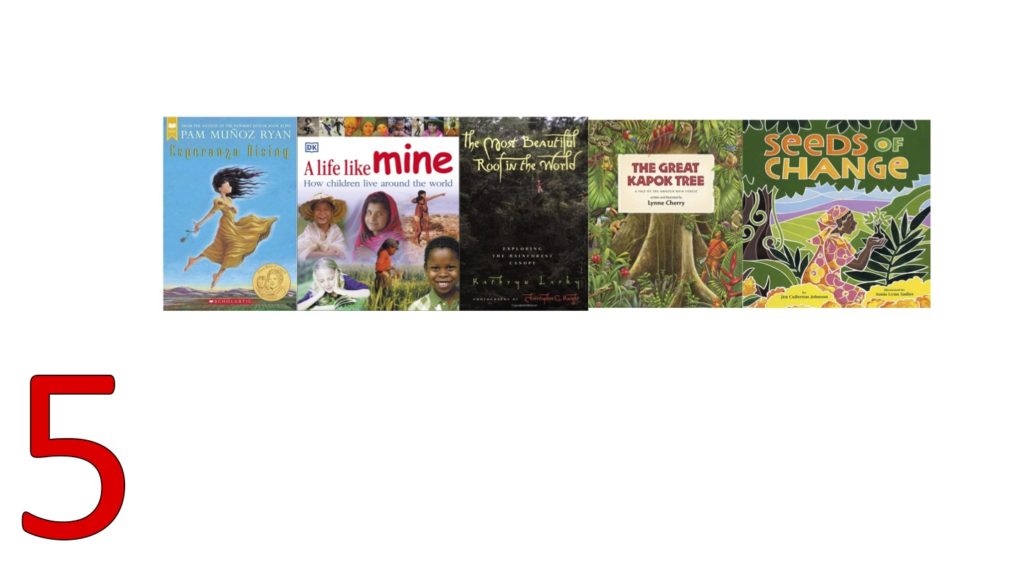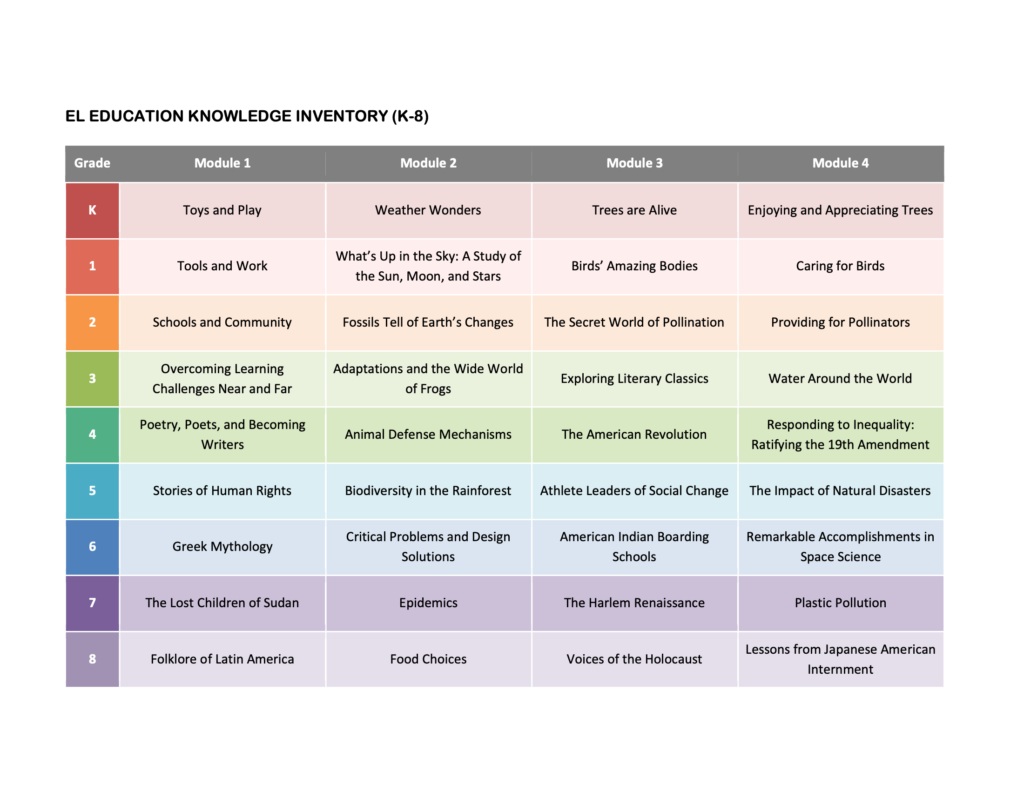EL Education (K-8)
Throughout the EL Education K–8 Language Arts curriculum, content knowledge and reading acumen are sharpened by engagement with rich, authentic, and complex texts that affirm students’ identities as learners and connect their academic learning to the outside world. Lessons help build students’ executive functioning and social skills while also calling on them to make meaningful contributions to their communities. The phonics program is differentiated and rooted in cognitive science: the protocols provide extra reinforcement or quicker pacing as students need. Many specific features are built in to support English learners.
Rich, rigorous, diverse texts:
How EL Education designs for:
Deep knowledge-building
The eight-week modular structure allows students to go deep with each topic and read full-length core texts supported by a whole range of supplemental readings. EL Education seamlessly incorporates life skills into history, science, and literature lessons. For example, students often plan and evaluate their day’s work in terms of its content but also by their ability to stay focused, think flexibly, and prioritize tasks.
All writing and conversations are purposeful, focused, and anchored in the content students are learning. Students write about and discuss texts daily. They also are given straightforward tools to work with vocabulary and syntax encountered in their readings. Many of these are designed for universal use and are especially helpful for multilingual learners.
Systematic foundational skills and fluency
Foundational reading lessons are rich and playful—a reminder of how joyous it is to learn to read. Students practice skills through a spirited mix of games, songs, and dances in response to weekly assessments. Decodable readers connect to the read-alouds in the primary grades. Grade-level fluency practice opportunities are baked seamlessly into lessons nearly daily.
Equitable access to challenging texts
Students engage deeply with complex texts over carefully crafted repeat encounters. Peer-to-peer learning protocols and classroom routines provide concrete supports for accessing the readings. Frequent assessments solidify learning and provide tools for re-teaching as needed. Social learning is a mainstay, with students working together frequently. EL Education pays attention to students owning their learning and developing the habits of successful student-citizens.
Topics of study
Learning and exhibiting deep knowledge
Foundational skills instruction
Access EL Education
EL Education was developed by the nonprofit EL Education, which continues to make the curriculum openly available on its website. Both Open Up Resources and Imagine Learning have partnered with EL Education to offer print materials and trade books necessary to use the curriculum.
EL Education in districts
11/07/2023
“All students are getting access to complex texts.”
06/05/2023
“Our old ELA curriculum didn’t really focus on collaboration with the people in your class, which is obviously incredibly important for us.”
06/07/2023
“It’s teaching us ELA skills, but it’s also teaching us life skills, things that we need to know for the future.”
06/07/2023
“The EL curriculum is great for enhancing creativity, because there’s so many projects that with other curricula you wouldn’t have thought of doing.”
06/07/2023
“What excites me is seeing the fifth graders in these deep conversations.”
06/05/2023
01/10/2023
01/24/2023
“There was a commitment to reduce variability in classrooms across grade levels and schools and to really dose up our instructional leadership team.”
11/15/2022
“Students are becoming content experts….in kindergarten, they can tell you eveything you want to know about trees.”
10/12/2022
“He went through that second year, and it was just magic.”
10/12/2022
“Teachers have been really excited about the collaboration and the academic talk that the students are building.”
10/13/2022
